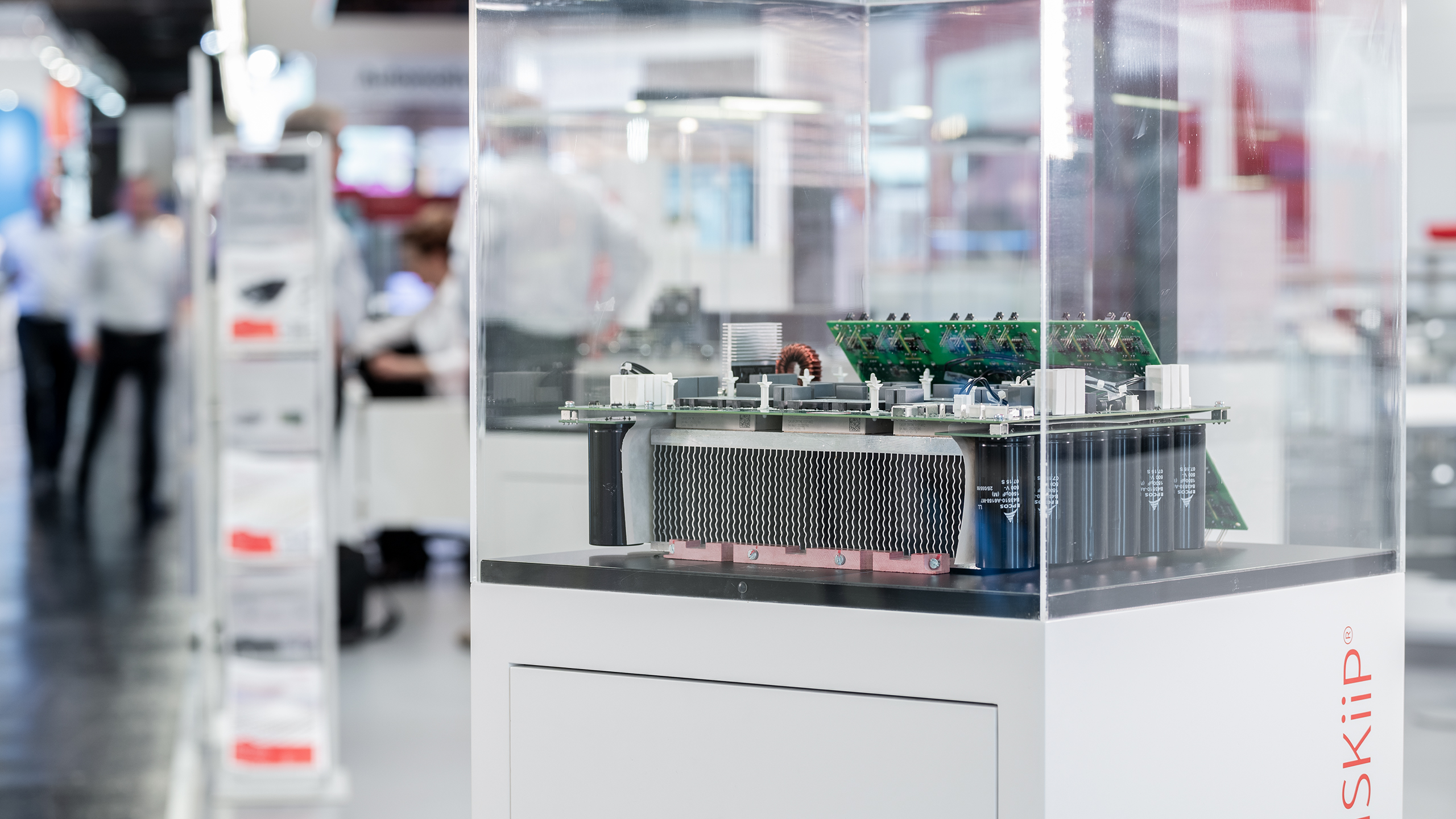The conference topics include the latest developments in power semiconductors, passive components, products for thermal management, energy storage, sensors, new materials and systems. The PCIM Conference is focused on trends in power electronics. Here, you will find a comprehensive overview of all topics.
A Power Semiconductors
- A01 Si IGBTs, High-Power Bipolar Semiconductors
- A02 Si MOSFETs
- A03 Smart Power ICs
- A04 SiC Devices
- A05 GaN Devices
- A06 Novel and Advanced Semiconductor Devices
B Thermal Management
- B01 Novel Materials for Thermal Management
- B02 Thermal Management Performance Verification and Measurements
- B03 Advanced Cooling Systems
- B04 Thermal Modelling and Simulations
C Packaging and Interconnection Materials
- C01 Encapsulation Material
- C02 High Temperature Materials
- C03 Die Attach Materials
- C04 Active Area Interconnection Materials
- C05 Substrate Materials
- C06 Heat Spreaders
- C07 Material Characterization and Modelling
D Packaging Reliability
- D01 High Power Density Designs
- D02 Integration Technologies
- D03 Power Electronic Components Reliability
- D04 Stress Monitoring
- D05 Lifetime Predictions
E Design and Control of Power Converters
- E01 Control Methods for Power Electronic Converters
- E02 Advanced Digital Control Algorithms
- E03 Pulse Width Modulation Methods
- E04 Intelligent Gate Drive Units
- E05 Intelligent Power Modules
- E06 Control ICs, FPGAs, ASICs and their Applications
- E07 Micro Controllers, DSPs and their Applications
F Low Power Electronic Converters
- F01 Switched Mode Power Supplies
- F02 DC-DC Hard- and Soft-Switched Converters
- F03 AC-DC and DC-AC Converters
- F04 EMI/EMC in Power Electronics
- F05 Lighting Systems
- F06 Power Electronics for Physics and Accelerators
- F07 Wireless Power Transfer
G High Power Electronic Converters
- G01 Solid State Transformers
- G02 DC-DC Hard- and Soft-Switched Converters
- G03 AC-DC and DC-AC Converters
- G04 AC-AC, Cyclo- and Matrix Converters
- G05 Medium Voltage Converters
- G06 HVDC Systems
- G07 FACTS
- G08 Solid State Breakers
H Power Electronics in Transportation Applications
- H01 Power Electronics for E-Mobility
- H02 Power Electronics for Railway Applications
- H03 Power Electronics for Aerospace Applications
- H04 Power Electronics for Marine Applications
- H05 Transportation Infrastructure Related Solutions
- H06 Charging Stations Technologies
- H07 Drives for Hybrid and Electric Cars
I Motors and Actuators
- I01 Design Optimization
- I02 High Performance Motors
- I03 Advanced Actuator Technologies and Principles
- I04 FEM Modelling and Simulations
- I05 Novel Materials for Actuators
- I06 Special Magnetic Devices
J Control Techniques in Electrical Drives
- J01 System Modelling and Simulations
- J02 Estimation and Identification Techniques
- J03 New Control Methods
- J04 Servo and Step Positioning Systems
- J05 High Performance Intelligent Drives
- J06 Sensorless Drives
- J07 Actuator Specific Control Techniques
K Motion Control and Drives in Automation
- K01 Mechatronic systems
- K02 Servo and Variable Speed Drives Applications
- K03 Embedded Control and Integration
- K04 Drives and Motion Control for Specific Applications
- K05 Control of Multi-Axis Decentralized Drive Systems
- K06 Functional Safety
L New and Renewable Energy Systems
- L01 Wind Energy Systems
- L02 Solar and Photovoltaic Energy Systems
- L03 Hydro and Wave Power Plants
- L04 Hydrogene Energy Systems
- L05 Geothermal Energy Systems
- L06 Heat Pumps
- L07 Sustainable Energy Systems and Sector Coupling
M Energy Storage Systems
- M01 Battery and Storage Technologies
- M02 Battery Management Systems
- M03 Safety Solutions
- M04 Mechatronic Design and Cooling Concepts
- M05 Charging Strategies
- M06 Battery Characterization
N Smart Grid Technologies
- N01 Smart Grids
- N02 Cybersecurity Technologies in Power Electronics Systems
- N03 Cognitive and Smart Drives
- N04 IIoT
- N05 Micro Grids, E-LANs (Energy networks) and IoE (Internet of Energy)
- N06 Communication and Cybersecurity for Electric Cars
- N07 DC Grids
- N08 Grid Stability and Resilience
O Power Quality and EMC
- O01 Power Quality Problems and Mitigation Techniques
- O02 Power Quality Standards
- O03 Power Factor Correction Methods and Technologies
- O04 UPS and Active Filters
- O05 Smart Metering, Diagnostics and Condition Monitoring
- O06 Power Quality Indices
- O07 Measurement Techniques, Methods and Equipment
- O08 Electromagnetic Compatibility and Immunity
P Design Tools including ML and AI
- P01 Modelling and Simulation of Power Electronic Components and Systems
- P02 Design Optimization Methods and Tools
- P03 Virtual Prototyping
- P04 Rapid Prototyping Tool and Methods
- P05 Digital Twinning
- P06 Design Automation
- P07: AI Supported Design
Q Transducers and Sensors
- Q01 Voltage and Current Sensors
- Q02 Motion and Actuation Sensors
- Q03 Thermal Measurement Devices
- Q04 Measurement Techniques and Methods
- Q05 Renewable Energy System Sensors
- Q06 High Frequency Measurement Techniques and Sensors
- Q07 Embedded Digital Signal Processing for Sensors
R Passive Components
- R01 Capacitors and Supercapacitors
- R02 Inductors and Transformers
- R03 Magnetic Materials
- R04 Resistors, Varistors, Thermistors
- R05 Fuses
- R06 Dielectric and Insulation Materials
- R07 Connectors and Interface Technologies
S System Reliability
- S01 Reliability and Availability of Power Electronics Systems
- S02 Fail-Safe and Fault-Tolerant Applications
- S03 Redundancy Concepts in Power Electronics
- S04 Life Cycle Cost Analysis
- S05: Condition and Health Monitoring
T Resources Availability and Sustainability
- T01 Design for Circular Economy
- T02 Reuse, Repair, Refurbishment and Recycling
- T03 Second Life Applications
- T04 Design for Environmental Compatibility

